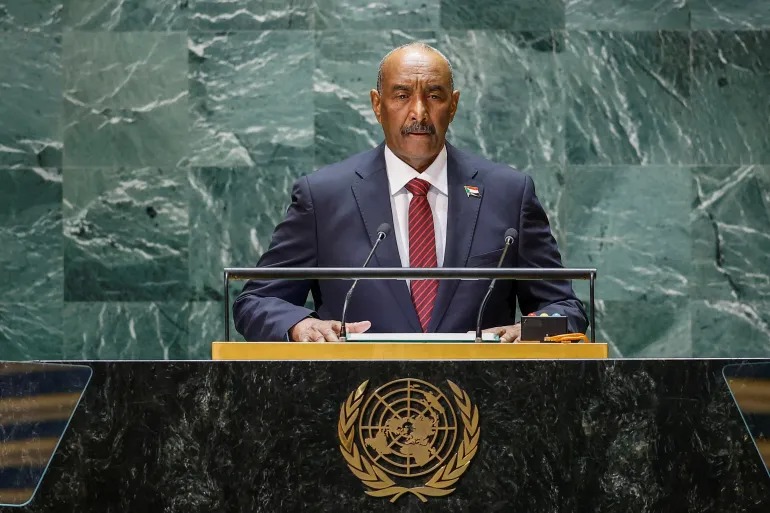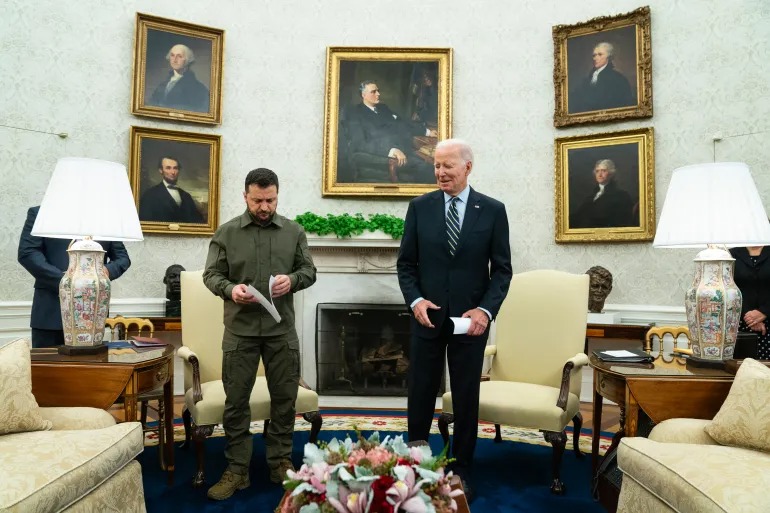Sudan’s army chief, Abdel Fattah al-Burhan, has issued a dire warning that the ongoing conflict in his nation could spill over and engulf the entire region. Al-Burhan, who has been actively engaged in diplomatic efforts to address the crisis, implored the international community to take action, urging them to designate the paramilitary Rapid Support Forces (RSF) as a terrorist organization. This call comes as tensions rise between the Sudanese government and the RSF, led by General Mohamed Hamdan Dagalo, also known as Hemedti, further escalating the conflict that has already claimed thousands of lives and displaced millions. Here, we delve into the details of this urgent plea and its implications for regional stability.
Al-Burhan’s Stark Warning
In a passionate address to the United Nations, General Abdel Fattah al-Burhan laid bare the gravity of the situation in Sudan. He emphasized the perilous nature of the conflict and its potential to ignite further violence across the region. Al-Burhan expressed deep concerns about rebel groups aligning themselves with outlaws and terrorist organizations from various countries, posing an imminent threat to both regional and international peace and security. He likened the situation to a spark that, if not extinguished, could engulf neighboring nations.
The RSF’s Terrorist Designation Appeal
Central to Al-Burhan’s plea was his call for the international community to officially designate the Rapid Support Forces (RSF) as a terrorist organization. Al-Burhan cited a litany of crimes allegedly committed by the RSF, including killings, burning, rape, forced displacement, looting, torture, arms and drug trafficking, and the recruitment of child soldiers. He argued that these actions warranted accountability and punishment, further emphasizing the urgency of taking action against the RSF.
Elusive Ceasefires and International Sanctions
Despite previous announcements of ceasefires by both the Sudanese army and the RSF, the conflict has continued unabated, exacerbating a dire humanitarian crisis. The United States recently imposed sanctions on RSF leaders, including senior commander Abdelrahim Hamdan Dagalo, for alleged abuses, such as the killing of the governor of West Darfur. Western powers, including the US, have also criticized General Al-Burhan for sidelining the civilian leadership and undermining the transitional power-sharing deal that followed the ousting of former leader Omar al-Bashir.
Al-Burhan reaffirmed his commitment to transferring power to the Sudanese people and pledged that the armed forces would permanently exit politics. International efforts to broker a lasting ceasefire have faced challenges, with initiatives from Saudi Arabia and the US stalling amid parallel diplomatic endeavors in Africa and the Middle East.
In the midst of these diplomatic endeavors, the situation in Sudan remains highly volatile, with the potential for broader regional instability looming large. General Abdel Fattah al-Burhan’s impassioned plea to the United Nations serves as a stark reminder of the urgent need for concerted international action to prevent the conflict from spiraling further out of control, threatening the stability and security of not only Sudan but the entire region.
















